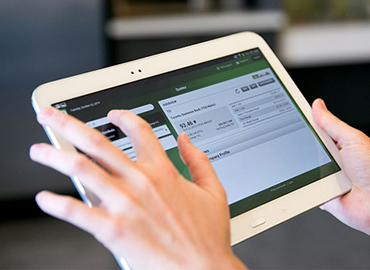Watertown Savings Bank will never request you to send your account number, password or social security number via e-mail.
PROTECT YOURSELF FROM FRAUDULENT E-MAILS AND WEBSITES
Watertown Savings Bank is aware of new phishing attacks targeting customers of Financial Institutions.
Watertown Savings Bank uses up-to-date online authentication methodologies.
Please be aware that e-mail scammers may send you an e-mail that appears to come from Watertown Savings Bank. The e-mail may provide you with a hyperlink that redirects you to a fraudulent site and asks you to provide your confidential personal account or security information.
The safest way to go to an authorized website is to type the web address in your browser. Hyperlinks in a fraudulent e-mail can appear to be going to the Watertown Savings Bank website but actually redirect you to a fraudulent site. To protect yourself, make sure an “s” appears after http every time you visit the Watertown Savings Bank website.
Unsolicited requests to provide the following types of confidential information should be considered suspicious:
- User ID
- User Password
- Account Numbers
- Answers To Security Questions
While Watertown Savings Bank may send you e-mail communications from time to time, we will never request you to send your account number, password or social security number via e-mail.
If you receive a suspicious e-mail or encounter a website that says it's from Watertown Savings Bank requesting your account number, password or social security number, do not respond to it and call Watertown Savings Bank at 315.788.7100. Our Customer Service Representatives are available to serve you Monday through Wednesday 8:30 a.m. to 4:00 p.m. and Thursday – Friday 8:30 a.m. – 6:00 p.m.
LEARN ABOUT THE 7 BEST PRACTICES FOR GREATER ONLINE SECURITY
Watertown Savings Bank uses comprehensive multi-level technology to ensure security and confidentiality on our online banking platform and other systems, which provide Internet Banking for individuals and businesses. However, there are additional steps you can take to be proactive in protecting yourself or your company when using the Internet.
- Protect your personal information. It's valuable.
- Know who you're dealing with.
- Use security software that updates automatically.
- Keep your operating system and Web browser up-to-date, and learn about their security features.
- Keep your passwords safe, secure, and strong.
- Back up important files.
- Learn what to do in an emergency.
View practical tips from onguardonline.gov, maintained by the federal government and the technology industry to help you be on guard against Internet fraud, secure your computer, and protect your personal information.
BUSINESS ACCOUNT MAIL DEPOSIT FRAUD
Please be advised that unknown individuals have been attempting to clear fraudulent checks on business accounts using the bank by mail platform. By sending the check directly to the bank, the business client is unaware of the fraudulent deposit.
How the scam works:
The fraud starts with the business account being compromised, (intercepting mailed statements/checks, computer viruses, spam, etc).The fraudster will mail a large check to the bank’s operational headquarters to credit the targeted business account with the business name appearing as payee on the check.
The bank accepts the check as a deposit to the business account, and processes the transaction.
Next, the fraudster creates a counterfeit check drawn off of the business account and issues the item to different business at another financial institution. (By sending the deposit and creating a check for the same amount payable to a different business makes the transactions appear legitimate).
The next day, the counterfeit check will come through the bank’s exchange area to be paid. By paying the check, the fraudster would be successful with the scam.
Tips to avoid a scam:
- Store your checks, deposit slips, bank statements and canceled checks in a secure and locked location. Never leave your checkbook in your vehicle or out in the open.
- Reconcile your account promptly and regularly -- quick fraud detection increases the likelihood of recovery.
- Never give your account number to people you do not know, especially over the telephone. Be particularly aware of unsolicited phone sales.
- Unless needed for tax purpose, destroy old canceled checks, account statements, deposit tickets, ATM receipts (they also frequently have your account number and worse yet, your account balance). The personal information on it may help someone impersonate you and take money from your account.
- When you receive your check order, make sure all of the checks are there, and that none are missing. Report missing checks to your bank at once. Should you fail to receive your order by mail, alert Watertown Savings Bank. Checks could have been stolen from mail box or lost in transit.
- Make sure you notify your check supplier (and Watertown Savings Bank, if necessary) if a new check order has not been received within a reasonable amount of time after you ordered them.


